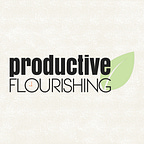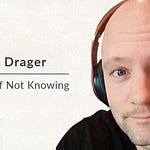In today’s episode, New York Times Best-Selling author of eight books and creator of the Open Heart Project Susan Piver, joins Charlie to talk about the links between mindfulness and creativity. During the discussion, both Charlie and Susan share some of what they’ve learned in their own practices that help them go back in when they get distracted, lost, or afraid.
Key Takeaways:
[2:57] - In her previous appearances on the show, Charlie and Susan talked about how meditation is not just about what happens while you’re meditating, but what it powers after you meditate. Meditation can help you become more creative and productive. In both meditation and creative work, you do two things simultaneously: we use our minds in a very precise way, but there’s also a sense of expanded awareness. In these instances, the thinking becomes one-pointed and spacious at the same time.
[7:27] - Both meditation and the creative process are open to distractions (whether that be losing the breath or losing a creative thread), which which may require the art of “going back in” to continue creating or meditating. There is a weird duality in both where you’re focused on one aspect, but you become aware of so much more.
[10:02] - Charlie and Susan talk about mindfulness and the choice that happens when you’re presented with a distraction, fear, or emotion. Many people may have the impression that those distractions, fears, and emotions go away, but more often than not it is a choice to return from those things and get back into the creative space. The same methods of returning don’t work for everyone, and that’s okay.
[14:55] - One of the consequences of meditation is that you’re able to access deeper parts of yourself - parts that you don’t think about on a conscious basis or pieces of yourself that only show up sometimes. Susan has found a lack of division between what’s hidden and what’s not hidden; it seems like one ongoing process. To her, the creation of the environment for those things to arise is what really matters, more than the choices she makes in the way she relates to herself.
[17:22] - Referring to a principle from Buddhism, Susan discusses the container principle, which states that the environment in which something occurs is inseparable from the something that occurs. This can be important for finding an environment that will allow creative flourishing. She has found it really useful to create a world where she feels well. In these instances, the environment becomes a source of spiritual nourishment and a source of confidence.
[20:07] - Charlie talks about the importance of finding a conducive space for creative work, and how this translates into being mindful throughout the day of the environments, relationships, and stories that you’re creating for yourself. This mindfulness helps us to be good at being ourselves.
[26:08] - One of the major links between meditation and the creative process is the sense of being in a place where you’re “falling” but there is no ground - you may be trying to harness your words for a post, or energy during meditation, but there is no way you can contain it all. You are surrounded by all these possibilities that may be hard to focus into one point. The human condition is full of these paradoxes.
[32:15] - One of the best things we can do for ourselves as creatives is just get started. As we become more practiced in turning away from distractions, it gets easier to start. While it’s important to plan and draw influence, the real magic comes from joining in.
[39:30] - A new practice Charlie has started is calling himself out on what tools and equipment are necessary to meditate or create. Don’t let a lack of resources be an excuse not to do or create something.
[46:16] - In cases where you don’t have the right tools, you have two options. You can either find or create a tool that will help you, or you can fight through those distractions and make it work.
[48:50] - The important thread of today’s episode is that the skills and practices learned from mindfulness and meditation can help you be more prolific, creative, and productive. In the same way, the skills used in productivity and creativity will likely help you be more mindful and more present in the world.
[51:03] - Susan leaves us the following challenge/ invitation: Relax. Do you remember how to relax? If so, please do it more; if not, please reconnect.
Mentioned in This Episode:
Productive Flourishing Podcast Episode 4: Become More Mindful with Susan Piver
Productive Flourishing Podcast Episode 54: Demystifying Meditation with Susan Piver
3 Growth Oriented Ways to Explore Your Creative Edge, by Larry Robertson on Productive Flourishing












